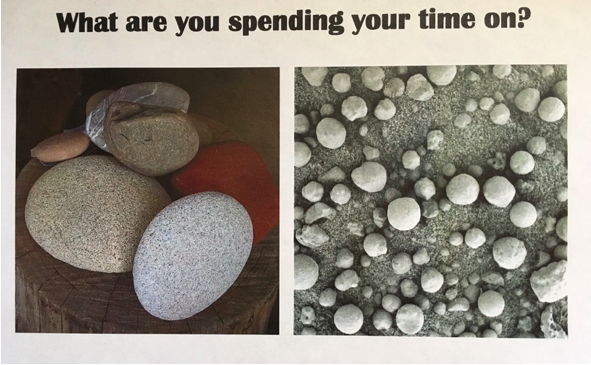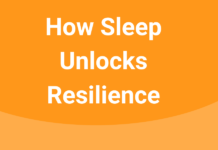
We all struggle with prioritizing the big and important things in life and making time and finding the focus to tackle them. For several years, when I was working in the corporate world, I printed this out and hung it up in my office.

It often caught people’s attention and got us started on substantive conversations about their work. We would discuss identifying priorities, choosing how to manage time and about focusing on the big rocks versus the little rocks. It was always insightful to hear what they thought were their most important tasks versus the things they were actually spending most of their time working on.
When faced with a big long list of tasks, most of us naturally gravitate to the quick and easy ones first. And, why not? Finishing off a few things quickly makes you feel good and accomplished in the short term. But, is this the right approach for the long term?
BIG ROCKS AND LITTLE ROCKS
You might recall Steven Covey’s story about life’s bucket. If you fill it first with sand, then gravel, you will run out of space for the bigger rocks. However, if you start with the big rocks first, followed by the gravel and finally the sand, there will be plenty of room for it all since the smaller items will fill in the gaps in between the bigger ones.
Seems to make sense in the physical world but how do we apply this to our real life tasks? How do we make sure we are putting the big rocks first when it’s so easy to get side-tracked by the gravel and sand? Nowadays it’s more difficult than ever with so many constant dings, pings, notifications and alerts all constantly clamoring for our attention.
Simply start by prioritizing your daily top three tasks, or BIG ROCKS, for each day. You don’t have to prioritize the little things; they will just naturally fall into place. You don’t need to put eat lunch or check email or go to the bathroom on your list of priorities because you will automatically make the time to take care of those things. It’s the big, important and hard things you need to identify and find dedicated time to focus on getting done.
TRY THIS OUT: First, evaluate what you are spending your time on? What are the big rocks that you need to tackle? How much time are you currently dedicating to the big rocks versus the little rocks? How can you adjust your schedule or your priorities to make time for the big rocks?





